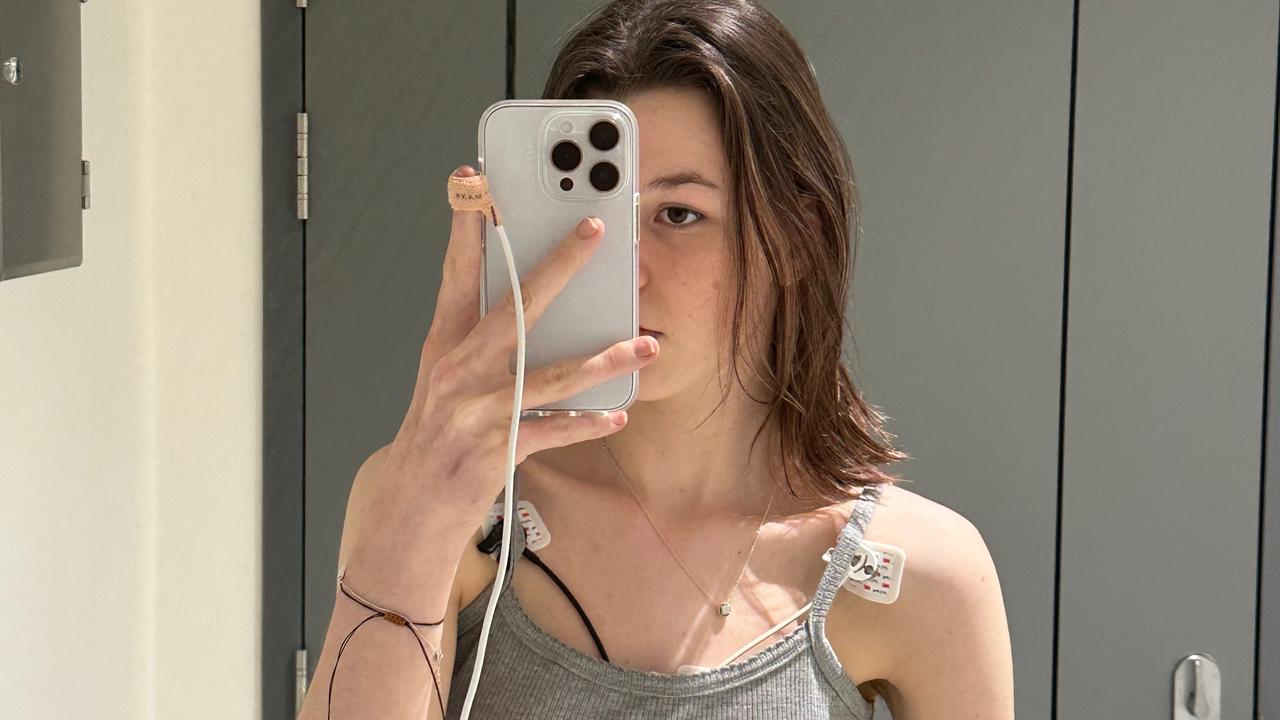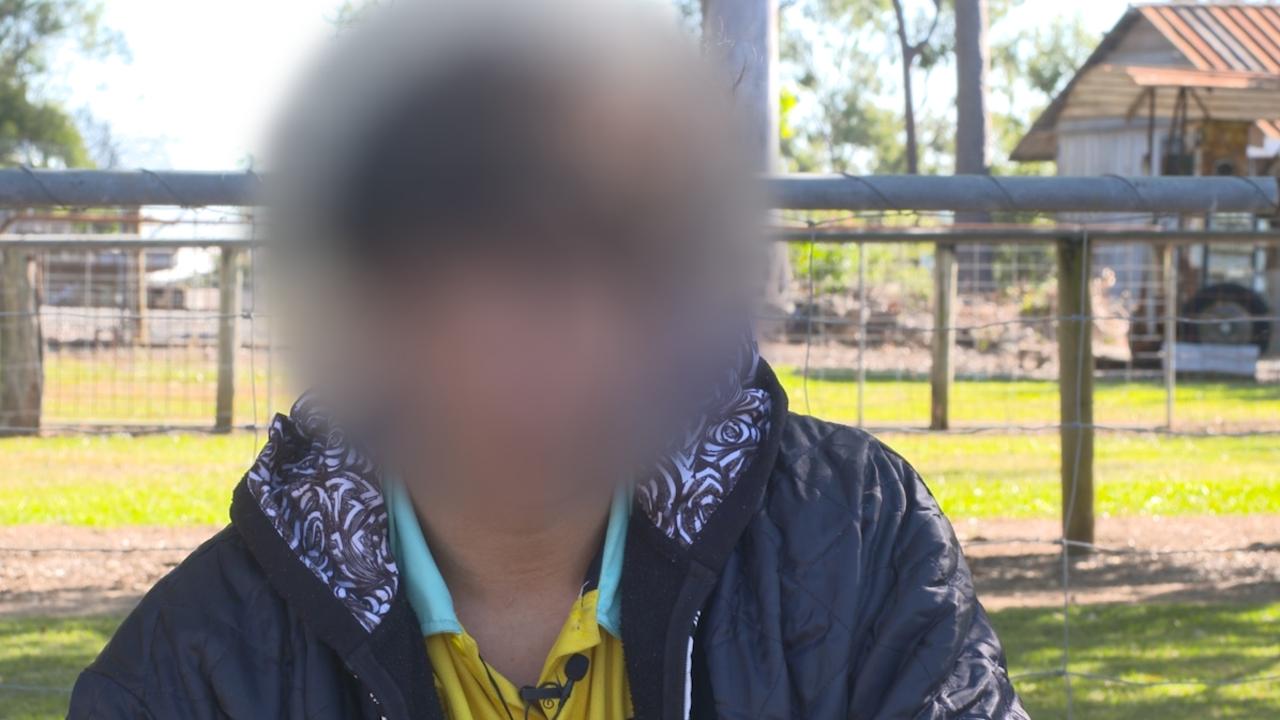Calls for rapid testing as tourists tear up Xmas plans in ‘unreliable’ SA
There are calls for the urgent introduction of rapid antigen tests after Covid test waiting times blew out – as tourist operators warn flip-flopping rules have sunk holiday hopes.
Coronavirus
Don't miss out on the headlines from Coronavirus. Followed categories will be added to My News.
Christmas plans in South Australia are in chaos, according to travel and hospitality industry leaders, who say the state is becoming an “unreliable destination” due to ever-changing restrictions and testing requirements.
Confusion and anxiety about being locked inside or outside of SA has led to cancellations “in the thousands” for corporate and personal Christmas parties across 6000 hospitality venues, said Australia Hotels Association chief executive Ian Horne.
“There is a continuing flow of cancellations, people are just getting extraordinarily nervous,” he said.
It follows lengthy wait times for Covid-19 tests, as South Australians experienced up to five hours of twiddling thumbs across multiple sites on Monday. That has prompted calls for the urgent introduction of rapid antigen tests as proof a person does not have Covid.
Multiple overseas travellers arriving in SA were caught up in confusing rules on Monday, being ushered to hotel quarantine despite being fully vaccinated with approved home quarantine arrangements.
High-profile people were among those reportedly caught up in the confusion, including pro golfer Wade Ormsby, and Julia Gillard.
Welcome home to South Australia this morning from Singapore. Jammed on a bus, sent to hotel quarantine. Pre approved for home quarantine as I’m double vaxxed and qualify via criteria set by our government. Completed entry check SA and approved. Zero information. @SAHealth 🤷ðŸ½â€â™‚ï¸
— Wade Ormsby (@wadeormsby) December 6, 2021
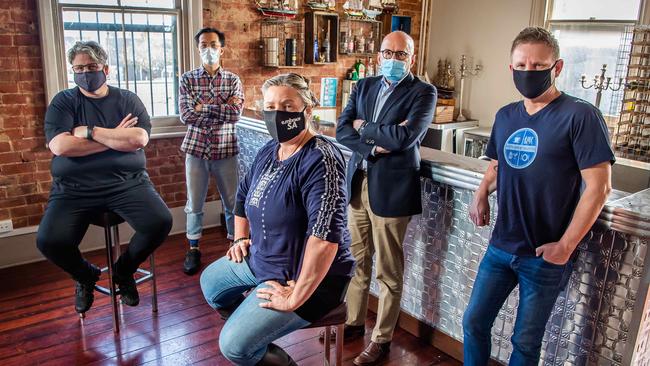
Mr Horne said changing rules despite consistent calls from hospitality leaders to ease restrictions was “undermining the confidence significantly of the industry”.
“We’re sending the eastern seaboard the message that South Australia is becoming an unreliable destination,” he said.
Travel industry leader Phil Hoffmann said a constant changing of the state’s stance to Covid-19 was confusing.
He said a large number of corporate visitors have cancelled trips because they were nervous about being locked in SA or becoming caught up in changes to border rules.
Both hospitality and tourism industries could have financial consequences for a further six-to-eight months if the pattern continued, due to lack of “confidence and consistency” in the industry, Mr Hoffmann said.
“Why have we raced to be double vaccinated if we don’t trust the system,” he said.
“The worst thing we can do is open borders and shut them down at a moment’s notice.”
Premier Steven Marshall confirmed on Monday that the possibility of closing borders remained open due to concern about the Omicron variant of Covid-19.
Mr Hoffmann said SA blew a “golden opportunity” to set an example to the rest of Australia on how to manage the virus, and now risked being seen as a “nanny state”.
“We had the chance to come out as one of the cleanest states to travel to and be open,” he said.
It follows lengthy wait times for Covid-19 tests, as South Australians experienced up to five hours of twiddling thumbs across multiple sites on Monday.
One person who had a Covid-19 test at the Repat Health Precinct drive-through clinic on Monday morning said he and his family waited a collective 4.5 hours in the line, despite booking.
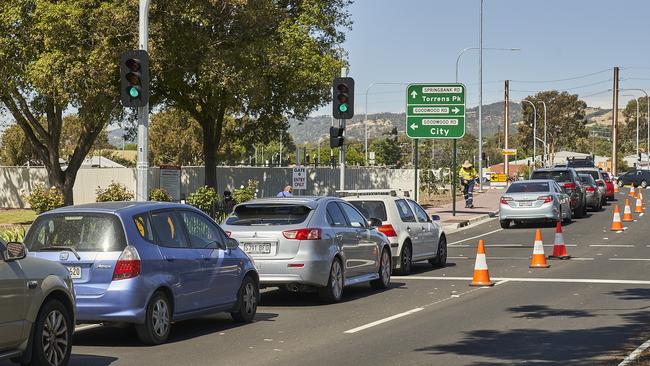
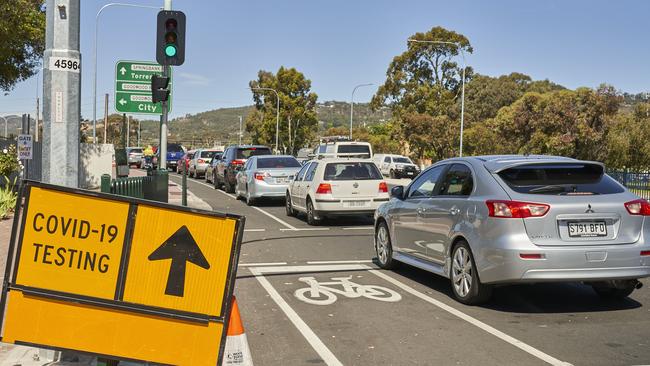
The day-six test, required for being a close contact of a positive case, led to a 90 minute wait for the man and about three hours for his family in a separate car.
Ironically, those who had booked tests were ushered into a lengthy queue in a priority lane just after 9am – the clinic opens at 8.30am – while those who had not booked were sent into a speedier lane.
To help mitigate wait times and avoid discouragement of getting tested, the Australian Medical Association will hold talks with SA Pathology chief Associate Professor Tom Dodd on Tuesday.
The AMA will call for the urgent introduction of rapid antigen tests as proof a person does not have Covid.
It comes as an increasing number of doctors demand proof of a negative test before seeing a patient, adding to queues at test facilities as more people are required to have checks.
Rapid antigen tests are freely available in other states but are outlawed in South Australia under emergency directions.
A government spokesperson said:“The Marshall Liberal Government’s strong Covid-19 response has ensured our state is the fastest growing state in the nation and has transformed into the most liveable in the country.
“We have had some of the lightest restrictions and the least number of lockdown days in the nation during Covid. South Australians only need to look to the eastern border to see the crushing impact on businesses due to the pandemic and we are now the first zero Covid-19 jurisdiction to trigger the tourism economy by opening our borders.
“In the past 4 months alone, we have paid more than $106m in cash grants to support local businesses and jobs, particularly those in the tourism, hospitality and events sector that have been hard hit by Covid.”
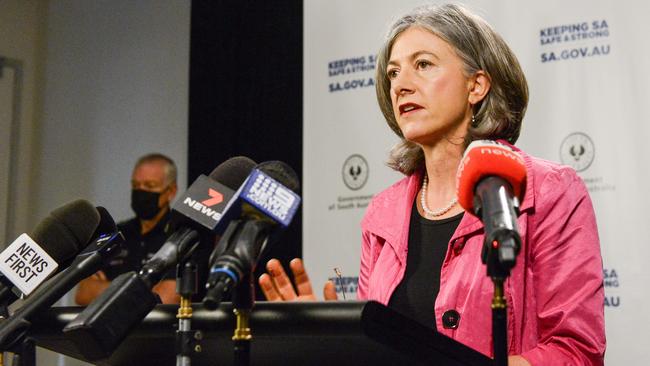
Prof Spurrier has indicated they will not be introduced until Covid is more widespread, as they are not as reliable as standard PCR tests.
However, AMA state president Dr Michelle Atchison told The Advertiser she wanted them introduced as soon as possible.
“We are meeting Dr Tom Dodd to discuss it – they are banned at the moment so you can’t use them here but we would like that to be lifted,” she said.
“I think we will see that happen.”
Dr Atchison said she was aware of growing numbers of specialists and GPs asking for proof of a negative Covid test.
“It is not the norm but it is now not an unusual request, especially for doctors who are going to have close contact with their patients, such as an ophthalmologist or a skin specialists,” she said.
“Having a rapid antigen test in such cases would be ideal.”
Mr Marshall hinted the state government had “considered” rapid antigen tests for “particular sectors or work places where that may be necessary”.



